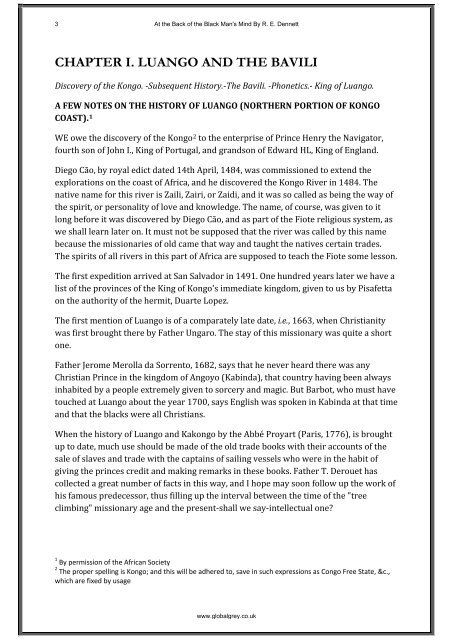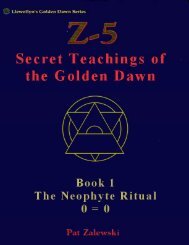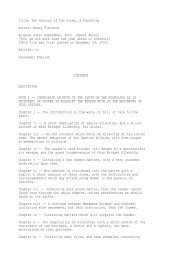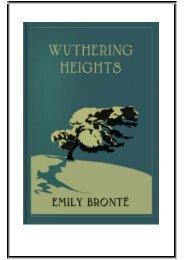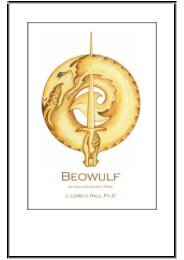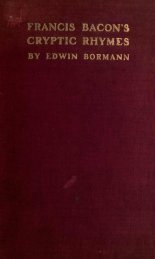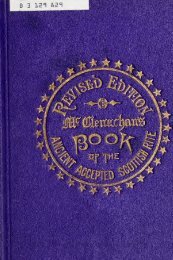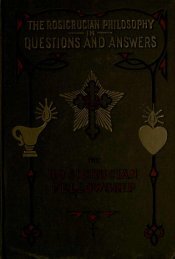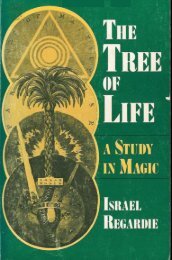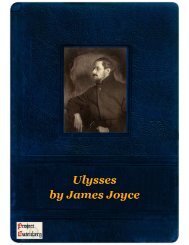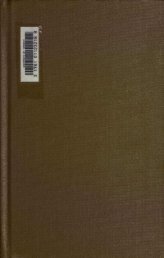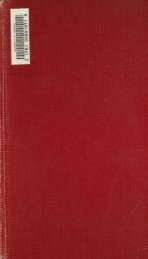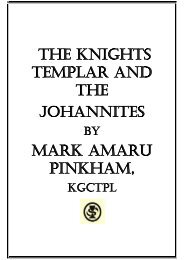Click to download PDF version: 3.87MB - Global Grey
Click to download PDF version: 3.87MB - Global Grey
Click to download PDF version: 3.87MB - Global Grey
Create successful ePaper yourself
Turn your PDF publications into a flip-book with our unique Google optimized e-Paper software.
3 At the Back of the Black Man's Mind By R. E. Dennett<br />
CHAPTER I. LUANGO AND THE BAVILI<br />
Discovery of the Kongo. -Subsequent His<strong>to</strong>ry.-The Bavili. -Phonetics.- King of Luango.<br />
A FEW NOTES ON THE HISTORY OF LUANGO (NORTHERN PORTION OF KONGO<br />
COAST). 1<br />
WE owe the discovery of the Kongo2<br />
<strong>to</strong> the enterprise of Prince Henry the Naviga<strong>to</strong>r,<br />
fourth son of John I., King of Portugal, and grandson of Edward HL, King of England.<br />
Diego Cão, by royal edict dated 14th April, 1484, was commissioned <strong>to</strong> extend the<br />
explorations on the coast of Africa, and he discovered the Kongo River in 1484. The<br />
native name for this river is Zaili, Zairi, or Zaidi, and it was so called as being the way of<br />
the spirit, or personality of love and knowledge. The name, of course, was given <strong>to</strong> it<br />
long before it was discovered by Diego Cão, and as part of the Fiote religious system, as<br />
we shall learn later on. It must not be supposed that the river was called by this name<br />
because the missionaries of old came that way and taught the natives certain trades.<br />
The spirits of all rivers in this part of Africa are supposed <strong>to</strong> teach the Fiote some lesson.<br />
The first expedition arrived at San Salvador in 1491. One hundred years later we have a<br />
list of the provinces of the King of Kongo's immediate kingdom, given <strong>to</strong> us by Pisafetta<br />
on the authority of the hermit, Duarte Lopez.<br />
The first mention of Luango is of a comparately late date, i.e., 1663, when Christianity<br />
was first brought there by Father Ungaro. The stay of this missionary was quite a short<br />
one.<br />
Father Jerome Merolla da Sorren<strong>to</strong>, 1682, says that he never heard there was any<br />
Christian Prince in the kingdom of Angoyo (Kabinda), that country having been always<br />
inhabited by a people extremely given <strong>to</strong> sorcery and magic. But Barbot, who must have<br />
<strong>to</strong>uched at Luango about the year 1700, says English was spoken in Kabinda at that time<br />
and that the blacks were all Christians.<br />
When the his<strong>to</strong>ry of Luango and Kakongo by the Abbé Proyart (Paris, 1776), is brought<br />
up <strong>to</strong> date, much use should be made of the old trade books with their accounts of the<br />
sale of slaves and trade with the captains of sailing vessels who were in the habit of<br />
giving the princes credit and making remarks in these books. Father T. Derouet has<br />
collected a great number of facts in this way, and I hope may soon follow up the work of<br />
his famous predecessor, thus filling up the interval between the time of the "tree<br />
climbing" missionary age and the present-shall we say-intellectual one?<br />
1<br />
By permission of the African Society<br />
2<br />
The proper spelling is Kongo; and this will be adhered <strong>to</strong>, save in such expressions as Congo Free State, &c.,<br />
which are fixed by usage<br />
www.globalgrey.co.uk


